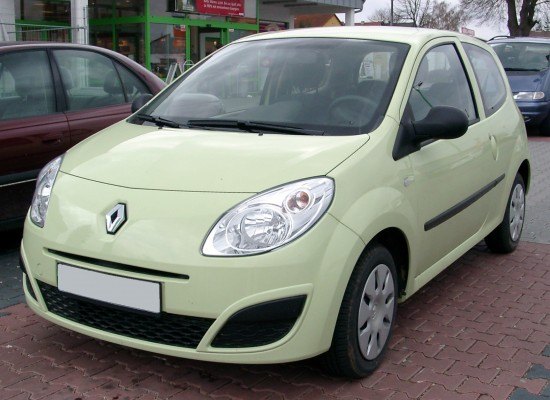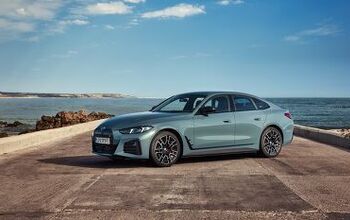Renault, PSA Face Unprofitable Paradox
Prevailing wisdom today holds that small cars, manufactured in developed economies are some of the least profitable cars in existence. So why do companies like Peugeot, Citroen and Renault persist in producing them?
In article in La Tribune (France’s leading business paper) explains why. Once upon a time, when Giscard d’Estaing ruled and the Fifth Republic was just being digested after a spicy summer of 1968, France decided to tax big cars, in the name of Liberté, égalité, fraternité. Since the biggest market for French cars was France, Renault, Citroen and Peugeot decided to switch to producing small cars – the Citroen SM was a footnote, rather than a mainstay of France’s auto industry, despite what the buff books tell us.
Up until recently, things were tries bien. Renault, for example, sold nearly half a millio Clio and Twingo models in 2012 alone. Not bad for a company that mostly plays in Europe, but these cars are also not so profitable. Renault is able to produce these cars in Turkey and Slovenia respectively (with some Clio production still kept in France) which takes away some of the sting.
Over at PSA, things are much more dire. Small cars (B and C segment, for clarification’s sake) make up about 45 percent of their sales, but a good chunk of them are built in France. Workers there earn 35 euros an hour, compared to 22 in Spain and just 10 per hour in Slovakia. PSA’s CEO told La Tribune that a new Peugeot 208 built in Slovakia would save an astonishing 700 euros per car, along with the contentious labor negotiations that go hand in hand with French organized labor. At Renault, the cost difference is even more staggering, with 1300 euros saved on the Clio when it’s built in Turkey. Any surprise that since 2005, both companies have cut their domestic production in half? The strong social safety net and egalitarian society designed to protect the workers has ultimately resulted in a contribution to their declining fortunes.
Ironically, the small car segment, for all the talk about shrinking profits, is growing in France. Registrations have continuously increased since 2007, from 45 percent of all cars to 53 percent in 2012. But the only way for car companies to make any money is to wither away domestic production in favor of the Dacia approach; old technology, no frills packaging and ultra-low cost production in developing economies. So far, only Renault has this capability. PSA is trying it’s hand at the Fiat and Mini approach, positioning Peugeot and the Citroen DS line as “premium” small cars, in the hopes of squeezing some more margin from their products. Given the increasing stratification in the European car market (where only the high and low ends can make any money) it is a risky approach. But not everyone wants to drive a Dacia, and not everyone can afford a Benz.
More by Derek Kreindler
Latest Car Reviews
Read moreLatest Product Reviews
Read moreRecent Comments
- Jeff I noticed the last few new vehicles I have bought a 2022 Maverick and 2013 CRV had very little new vehicle smell. My 2008 Isuzu I-370 the smell lasted for years but it never really bothered me. My first car a 73 Chevelle and been a smoker's car after a couple of months I managed to get rid of the smell by cleaning the inside thoroughly, putting an air freshener in it, and rolling the windows down on a hot day parking it in the sun. The cigarette smell disappeared completely never to come back. Also you can use an ozone machine and it will get rid of most odors.
- Lou_BC Synthetic oil for my diesel is expensive. It calls for Dexos2. I usually keep an eye out for sales and stock up. I can get 2 - 3 oil and filter changes done by my son for what the Chevy dealer charges for one oil change.
- Joe65688619 My last new car was a 2020 Acura RDX. Left it parked in the Florida sun for a few hours with the windows up the first day I had it, and was literally coughing and hacking on the offgassing. No doubt there is a problem here, but are there regs for the makeup of the interiors? The article notes that that "shockingly"...it's only shocking to me if they are not supposed to be there to begin with.
- MaintenanceCosts "GLX" with the 2.slow? I'm confused. I thought that during the Mk3 and Mk4 era "GLX" meant the car had a VR6.
- Dr.Nick What about Infiniti? Some of those cars might be interesting, whereas not much at Nissan interest me other than the Z which is probably big bucks.


































Comments
Join the conversation
"but a good chunk of them are built in France. Workers there earn 35 euros an hour," I bet assembly line workers don't, on average, without overtime. 35 hours*52weeks*35 euros is 64000 euros, or 85000 dollars. Prove it. 100 of your paltry US dollars says I'm right. You have my email.
I do believe the French will not be able to change labour practices very easily. Hollande will further reduce Frances competitiveness even further. Not only France but much of Europe will soon realise that protecting the labour force will produce inefficiencies and reduce competitiveness. But like th US the French and most of the Euro area's people don't want to change their ways. The only way for France and the rest of the Euro area to get back on their feet is to reduce the value of the Euro and restructure their economies. The major OECD economies aren't competitive after years of confusing and extensive trade barriers in the form of ridiculous regulations across all industries not only the automotive industry. After re-unification in the 90s the Germans started to restructure their economy, but they will gradually be tied up in the "Southern Countries" woes including France. When at my uncle's in the south of France they love to have their ce est, a couple of hours off at lunch. At least Renault has Nissan, just like Fiat has Chrysler.